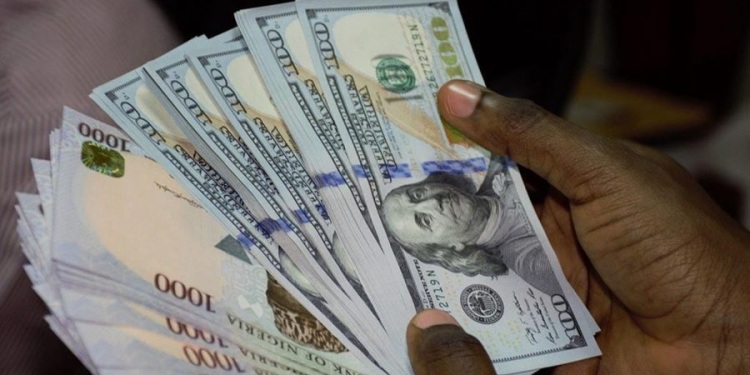

In a recent economic development, the Nigerian Naira has experienced a significant crash, reaching alarming rates against the US Dollar both at the black market and the Central Bank of Nigeria (CBN). The devaluation of the national currency has raised concerns among citizens and policymakers alike, prompting discussions about its impact on the country’s economy and the possible reasons behind the sharp depreciation.
As of the latest reports, the Naira has fallen to N860 per US Dollar at the black market, while it stands at 773.93 Naira per Dollar at the official exchange rate set by the CBN. These figures represent the lowest levels the Naira has reached in its history, and the situation is garnering attention both locally and internationally.
Factors Contributing to the Naira’s Depreciation:
Economic Instability: Nigeria has faced economic challenges over the years, including fluctuating oil prices, weak economic growth, and high inflation rates. These factors have put immense pressure on the Naira’s value.
Foreign Exchange Reserves: The country’s foreign exchange reserves, which play a crucial role in stabilizing the currency, have experienced declines due to a decrease in oil revenues and external debt obligations.
Central Bank Interventions: Despite efforts by the CBN to manage the exchange rate, the disparity between the official rate and the black market rate has widened, leading to arbitrage opportunities and increased pressure on the Naira.
Speculative Activities: The devaluation of the Naira has attracted speculative trading at the black market, causing further volatility and exacerbating the currency’s downward spiral.
Impact on the Nigerian Economy:
Rising Inflation: A weaker Naira can lead to higher import costs, subsequently driving up consumer prices and contributing to soaring inflation rates.
Reduced Purchasing Power: As the Naira’s value declines, the purchasing power of Nigerians decreases, impacting their ability to afford essential goods and services.
Investment Climate: Currency instability can deter foreign investments as potential investors become wary of the uncertain economic environment.
Fiscal and Monetary Challenges: The devaluation places immense pressure on fiscal and monetary policies, requiring careful calibration to ensure economic stability.
The Chairman of Agatu Local Government Area of Benue State, James Melvin Ejeh, has issued…
Primate Elijah Ayodele, the leader of INRI Evangelical Spiritual Church, has issued a stern warning…
Despite the chilly conditions in Blida, located on the outskirts of Algiers, Nigeria's U17 women's…
Operatives of the National Drug Law Enforcement Agency (NDLEA) have seized illicit substances valued at…
At least 50 communities across 25 council wards in five local government areas (LGAs) in…
Veteran Nigerian singer Innocent Idibia, popularly known as 2Baba (or 2face), has reunited with his…